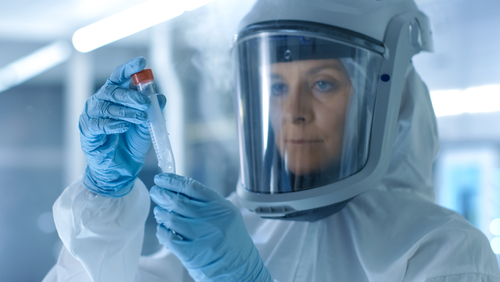
With research on hold at its Fort Detrick, Md., location following a federal-government-ordered shutdown, the U.S. Army Medical Research Institute of Infectious Diseases (USAMRIID) this week began what it deems “a major re-set of its biological safety program,” which provides leading-edge medical capabilities to deter and defend against current and emerging biological threats.
“The move results from several actions recently taken by the Centers for Disease Control and Prevention in response to concerns about USAMRIID’s past management of its Biological Select Agents and Toxins research program,” said Caree Vander Linden, spokesperson for USAMRIID, in a statement sent to Homeland Preparedness News.
USAMRIID has been the U.S. Department of Defense’s (DOD’s) lead laboratory for medical biological defense research since 1969 with its core mission being to protect American warfighters from biological threats.
However, the institute also investigates disease outbreaks and public health threats, conducting myriad research that has led to medical solutions — including therapeutics, vaccines, diagnostics, and information — that benefit both military personnel and civilians, according to the institute.
The facility’s Biosafety Level-3 and BSL-4 containment laboratories, which are its highest-security labs, have worked on numerous pathogens, including Ebola and the plague, which are among those considered “select agents and toxins” by the U.S. Department of Health and Human Services (HHS).
In fact, HHS only allows authorized labs to work on such pathogens.
During a June site visit to USAMRIID, inspectors from the Centers for Disease Control and Prevention (CDC) identified several deviations in the institute’s Standard Operating Procedures, which the statement said are designed to safeguard laboratory workers in its BSL-3 and BSL-4 labs.
The statement explained that a “May 2018 failure of the Fort Detrick Steam Sterilization Plant and USAMRIID’s subsequent transition to modified BSL-3 procedures and a new chemical effluent decontamination system, increased the operational complexity of biocontainment laboratory research activities within the institute.”
In July, the CDC served USAMRIID with a cease and desist order after finding that the institute did not have “sufficient systems in place to decontaminate wastewater,” according to the statement.
USAMRIID then received a formal suspension of its registration by the Federal Select Agent Program, effectively halting all Biological Select Agents and Toxins work in registered laboratory areas.
Now, Vander Linden said that USAMRIID is engaged in ongoing discussions with the CDC to address the way forward.
USAMRIID, “is committed to doing the serious work required to effect a meaningful and permanent change in its safety culture.”
While the institute’s research mission is critical, Vander Linden said the safety of the workforce and community is paramount.
“USAMRIID is taking this opportunity to correct deficiencies, build upon strengths, and create a stronger and safer foundation for the future,” the statement said.




